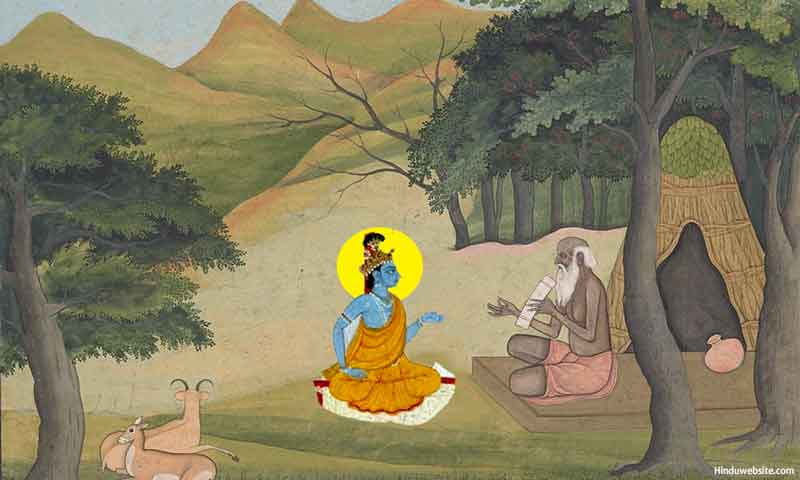
Follow Angirasa as Your Guru as Krishna Did

Please do not look for complete answers or information in these. They are fragments of thoughts which deal with only certain aspects of the chosen subject
Follow Angirasa as your Guru as Krishna did. I have stated previously that according to the Chandogya Upanishad, Krishna learned about the sacrificial nature of human life from Ghora Angirasa and thereby became free from desires (a-pipasa). You too can make Ghora Angirasa your guru and like Krishna become free from desires.
You may wonder how that is possible. This is how you can do it. Regulate your breath as you perform various daily functions. What you breathe out is an offering and what you breathe is a sacrifice. If you remember this, your life becomes a continuous sacrifice. Let you mind follow the breath as you breathe in, as you hold it in your body and as you breathe out, remembering always that you establishing a connection with the heavens through your breathe and letting its pure energy transform you and purify you.
When you breathe, listen with concentration to its subtle sound. If you pay attention during your breathing, with each breath you will almost hear the sound of Aum or 'Soham,'.
If you let your mind silently chant either of the sounds as you breathe in and breathe out during the whole day, your will let your breathe become your guru and bring peace, stability, knowledge and wisdom into your life.
Breathe is your constant companion. The good thing about it is that it is not subject to desire, like other actions. You perform various actions because of desires, but in case of breathing you do it involuntarily.
Now, you may ask, "What Angirasa has got to do with breath?" Well, there is a symbolic connection. Angirasa literally means the sap (rasa) of the organs of the body (anga). Breath is the Angirasa of your body. The Upanishads state this very clearly in several verses. Breath is often equated with Atman (Self) itself. The very meaning of Atman is the one who breathes.
If you follow this Angirasa (your breath) continuously with dedication, you will eventually stabilize your mind and experience inner peace. The practice of Pranayama (breath regulation) is based on the same principle. Breath is your inner guru, the deity, to whom, according to the Upanishads, even the gods of heaven submit. He is incorruptible, because your breathing is not influenced by desire. You are alive only so long as the breath stays in your body. /p>
There is a lot of symbolism hidden in the Hindu scriptures. The one which I have presented here is one example. If you understand it your knowledge of the scriptures grows exponentially as you learn to interpret the verses from different perspectives and many levels. << >>
Suggestions for Further Reading
- What are The Upanishads?
- How old are the Upanishads?
- Exploring the universe the Upanishadic Way
- Which Upanishads One Should Read?
- Who Composed The Upanishads?
- Women in the Upanishads
- Mahavakyas in Your Daily Life
- Sexual Morality in the Upanishads
- Krishna in the Upanishads
- Follow Angirasa as Your Guru as Krishna Did
- How Many Times Do You Reincarnate?
- Are The Upanishads Better Than Modern Psychology?
- Popular Misconceptions About The Upanishads
- Popular Themes of the Upanishads
- The Difference Between Devas And Asuras, Or Between Gods And Demons
- What Brings You Prosperity And Fame?
- Birth and Conception in Hinduism
- The Wisdom of the Upanishads, Main Page
- Essays on The Upanishads
- Upanishads Home Page from Hinduwebsite.com
- Links To Translations of the Upanishads
- List of 108 Upanishads According To The Muktikopanishad
- Introduction to the Upanishads of Hinduism
- A Brief Introduction to the Upanishads
- Essays On Dharma
- Esoteric Mystic Hinduism
- Introduction to Hinduism
- Hindu Way of Life
- Essays On Karma
- Hindu Rites and Rituals
- The Origin of The Sanskrit Language
- Symbolism in Hinduism
- Essays on The Upanishads
- Concepts of Hinduism
- Essays on Atman
- Hindu Festivals
- Spiritual Practice
- Right Living
- Yoga of Sorrow
- Happiness
- Mental Health
- Concepts of Buddhism
- General Essays